|
Guest Blogs |
|
An Introduction to Protecting Your Intellectual Property
By David Garcia, Jr. I am a lawyer. This is not legal advice. Just a few thoughts on protecting one's Intellectual Property. A lawyer friend of mine wrote a children's book which is going to be the foundation of an IP portfolio. I'm sure he's not the only one, from the number of book launch announcements I've seen everywhere. You know the kind: a children's book with a story and characters apparently written with the hope of having them adapted into a film or TV series. There's nothing wrong with that, and I'm not here to judge them. In fact, I’m one of them, although I write YA and MG books. In his case, he's looking for a publisher, but he wants to have as much protection for his IP as soon as possible. He’s handling the copyright application himself, and that's a good first step. Here's what my friend, and now my client, has done. He wrote the book for a readership consisting of six-to-eight-year-old kids. It's illustrated. He's the author of the text and the illustrations, so he's an author-illustrator. In one way, that makes it easier for me because he's the copyright owner of 100% of the book's content. In other words, I don't have to worry about the other person, whether an author or an illustrator, and what rights and/or percentages of contribution the other person might claim, and whether the percentages might be in dispute, especially if they hadn’t been previously agreed to; always talk about the percentages at the beginning and sign an agreement regarding that. In this case, it means fewer documents for me to prepare. He also paid for a book trailer. As you know, a book trailer is a marketing tool. Here's the rub. The book trailer is a mini-movie, and it contains some of his book’s text and illustrations. From the legal point of view, in order for him to own all the rights to the book trailer, he has to have what we call chain-of-title documents even if he won’t be selling the trailer. Yes, it's a stack of documents, usually contracts. The stack of documents consists mostly of contracts signed by every person who contributed to the making of the trailer. Just like a movie or a music video made by one of my music industry clients. In this case, my client wrote the script, but if he had hired someone to do it, my client would need to have the scriptwriter sign an employment agreement in which the writer grants all rights to my client. Since his book trailer is animated, that means less work for him and me, which I'll demonstrate below. The voiceover artists will sign a contract similar to that of the scriptwriter. Since the animation is done with the help of an animation studio, the company that owns the studio will have to sign a contract similar to that of the scriptwriter mentioned above, but in its capacity as a company and an employer in its own right, guaranteeing that it has the rights to the labor and services of its employees and delivering same to my client. In my client's case, the animation studio provided both the audio and the visual elements of the book trailer. If the trailer’s audio were recorded at a sound recording studio, then the recording studio would have its own contract with my client. If the book trailer had been a live trailer rather than animated, it would have had actors performing, with their performances being recorded live, hence the use of the term live. Since my client is making the trailer himself, that makes him the trailer's producer. Then he, as producer, would have had to hire a casting director to help him with the casting decisions. That would have required a separate contract with the casting director, unless he/she provides his or her own contract, in which case I would simply review that contract for my client. Then I would have prepared contracts with the actors or on-camera talent. Locations also require location agreements. In an animated trailer as well as in a live trailer, the services of a director are required, and he or she would have to enter into a contract with the producer/author. Once the trailer's principal photography is done, that is, when the "shoot" or the video recording of all the performances is done, then post-production takes place. Post-production, or post, as we call it, involves editing, additional audio recording, graphics, titles, sound and visual effects, and whatever other needs the trailer may have. This requires a contract with the post house unless the production house or animation studio included that in its contract with the producer. Now that the trailer is in the can, my work as an IP lawyer continues. "In the can" is an old phrase from when movies were shot on film, and the finished and edited film was placed in cans for distribution to theaters. We still use that phrase, or some of us do. For one thing, my client needs to obtain a copyright registration for his trailer, which, in his case, might have the same title as the IP project. In other cases, it may be different; think of the Star Wars iterations. The next step is for the author, as IP owner, to take steps to protect his book series. It is possible for the title of a book series to be protected under the United States trademark law. An application for trademark registration is made at the United States Patents and Trademarks Office (USPTO or PTO). A title cannot be copyrighted, so there is no way to copyright a book title. If the book is already published, then the application for a trademark using the book title is made showing proof of actual use of the title in commerce, that is, across state lines. If the book is not yet published, the trademark application is made on an Intent-To-Use (ITU) basis. That means that the applicant intends to use the mark at some time in the future but is not doing so at the time of the application. Sometime after filing the ITU application, the applicant must submit proof of having used the mark in commerce. Each application has its own requirements and timelines. Each application is, to a great extent, different from every other application. It must be said that we always advise trademark clients to have a trademark (or service mark) search done by a law firm or company that specializes in searches. I don’t render that service. This search must be done before the book (or product of any kind) is manufactured and offered to the public. There have been cases in which everything from table games to music bands have had to change their names because someone else was already using the name (mark), which could have been avoided by having a trademark search done ahead of time. There is nothing worse than receiving a cease and desist letter from a competitor’s law firm after a lot of time, effort, and money have been spent, and now an entire print run has to be destroyed, and a project has to be renamed, with the consequential changes to marketing and advertising. Not to speak of the loss of professional standing and branding. Read this paragraph again, please. If the book is sold in other countries, the author will need to obtain IP protection there. His/her book publisher should be of help in this matter. Because there are copyright, trademark, and brand trolls all over the world, companies such as Disney have networks of lawyers and others who help it protect their IP, both existing and forthcoming. One of the earliest, simplest, and cheapest ways to protect IP is by registering the domain names of one’s brands, titles, characters, or whatever is important. One should register one’s mark with as many extensions as possible, not just the proverbial dot com, but the dot net, dot info, etc. Additional protection for your mark may be obtained by registering the plural of your mark because, believe it or not, trolls will do it if you don’t. Developing a website is a topic for others to explain, not for me. The internet is not the problem, ill-intentioned people are, although, to be fair, there are countries in which people know nothing about Intellectual Property protection, so they’ll take what they can. China is one example, and some may say, the worst. Over there, it’s not unusual to see a Volkswagen with a Rolls Royce grille or some other form of pirated products. Some of you may know about the selfie stick inventor who had his selfie sticks made in China, only to find out that someone there copied his design and was selling it over there before his was even manufactured. Don’t let that stop you from being the best creator that you can be. Along with a domain name registration (and timely renewal), it’s recommended that you obtain your IP pages (or servers, if that’s what they’re called) in every social network platform that you can. It’s mostly free and a bit time-consuming, but it’s better that you do it and not an interloper. I hope that this helps to give our readers an understanding of the protection of IP in the US. I am a lawyer. This is not legal advice. Just a few thoughts on protecting one's Intellectual Property. My thanks to our host Mark Schultz for letting me share these thoughts with you. Best of luck in your writing and creative endeavors! My email is: [email protected] My landline phone number is: 210-224-2400 https://www.facebook.com/garciamatrix
0 Comments
Paraphrasing is an essential skill for any writer. It involves rephrasing someone else's words or ideas into your own unique language, without changing the meaning. Paraphrasing is often referred to as rewriting or restating existing ideas or content. It is a crucial undertaking to avoid plagiarism and to ensure that your writing is clear and concise. However, it can be a time-consuming and painstaking task, especially when you need to rephrase a large amount of content. That's where Paraphrasingtool.ai comes in. This powerful tool is designed to help writers upgrade their paraphrasing skills quickly and effortlessly. Wondering how? Well, this post is all about Paraphrasingtool.ai and how it can help you paraphrase any text, regardless of its length or complexity. So, buckle up, and let’s get started! What Is Paraphrasingtool.ai? Paraphrasingtool.ai is an AI writing assistant tool that comes with top-notch features such as a paraphrasing tool, grammar checker, plagiarism checker, and summarizer, just to name a few. Paraphrasingtool.ai boasts an advanced-level paraphrasing tool that sets the standard for precision and efficiency. Paraphrasingtool.ai offers browser extensions for almost every browser so you can integrate this magical tool within your preferred browser. Not only does this powerhouse paraphrasing tool offer most of its features for free, but it also provides unbeatable affordability for its advanced features. Recently, I tried Paraphrasingtool.ai myself for rephrasing content and was blown away! Its intuitive interface made it a breeze to navigate, and I was paraphrasing like a pro in mere minutes. But that's not all - Paraphrasingtool.ai also caught some sneaky grammatical errors that had dodged me. It was like having a personal editor right at my fingertips! And the best part? You can test it out for free and see for yourself. So here I will help you use Paraphrasingtool.ai and take your writing to the next level. Features Of Paraphrasing Tool Paraphrasingtool.ai is one of the best paraphrasing tools available online, I bet. Let's dive into some of the standout features of this powerful tool:
My Experience With Paraphrasingtool.ai I put Paraphrasingtool.ai to the test, running extensive trials with both the web app and Chrome extension - and the results were amazing. In this section, I'll spill the tea on my experience with Paraphrasing Tool’s different paraphrasing modes, as well as how the Chrome extension came in clutch for fixing issues in my Gmail editor. From the get-go, Paraphrasingtool.ai’s smooth user interface made paraphrasing a breeze. With just a single click of a button, I could effortlessly ask the tool to rephrase my writing- no more clunky paraphrasing required! Paraphrasing Modes Paraphrasingtool.ai has a whopping eight different paraphrasing modes available to users, all conveniently located in the top bar of their web app. While the free trial only includes audio and image paraphrasing, direct access to the research panel, and standard paraphrasing modes including:
But which mode should you choose? In the next section, we'll break down the performance of each individual mode, making it easy for you to decide which one will best suit your needs. Free Rewriter The free paraphrasing mode is available for all users for up to 20,000 characters. This mode is a great option for longer pieces of writing such as essays, theses, research papers, articles, and long-form blog posts. Text Improver Meanwhile, the "Text Improver" mode simplifies writing styles and fixes sentence structures for clearer, more concise text. Here I’m using the text improver mode to make the text sound professionally written with no errors at all. Note that I selected a professional tone for this text. Near Human If you're looking for near-human-level rewriting, the "Near Human" mode is the perfect choice. It offers a level of rewriting that's so advanced, it's almost indistinguishable from the work of a human writer. Here I’m using the near-human mode with the casual tone to make the text sound more human-written and less robotic. Plagiarism Remover Moving on to the premium modes, the "Plagiarism Remover" ensures writing integrity by making your content original and unique. This mode is particularly useful for those who are worried about plagiarism in academics or any type of writing. Creative With the creative mode, Paraphrasingtool.ai’s AI taps into its creativity to generate fresh and innovative rewrites of your text. To demonstrate its powers, here's an example I came up with: Academic The "Academic" mode is tailored specifically for academic writing and can improve research papers, essays, and dissertations. Quill Text This mode elevates the quality of your writing by utilizing AI to refine your language and improve coherence and clarity. Sentence Rephraser You can use sentence rephraser mode to select the optimal version of a sentence from a list of ten proposed alternatives. Let’s see how the text improver mode executes on the email I wrote: In my opinion, the feature functioned quite satisfactorily. Although, it's worth noting that the replacement phrase "look forward" is more professional than the original phrase "eager to hear". In any case, this feature effectively makes the writing more professional without sacrificing the intended message. Paraphrasing Using Browser Extensions One of the most efficient ways to utilize Paraphrasingtool.ai for rewriting content is through its browser extension. By doing so, you no longer need to repeatedly access the web application to employ the AI paraphraser. The tool offers dedicated browser extensions for popular web browsers like Chrome, Firefox, Edge, Opera, and Safari. The browser extension can be used on any platform, allowing you to work conveniently without any restrictions. Let me demonstrate how I used Paraphrasingtool.ai’s Chrome extension for paraphrasing an email. Paraphrasingtool.ai offers all of its modes to rephrase text as per your paraphrasing needs. To rephrase the entered content, all you need to do is to select the paraphrasing mode and click on “Start Paraphrasing”. For example, here I selected the text improver mode to make it more fluent and error-free. And when I tapped on the “start paraphrasing” button, Paraphrasingtool.ai started rephrasing to make the text correct. And this was the spun text: What do I like the best about its Chrome extension? Well, you can easily access the rephrasing features wherever you work. Simply enter the text you want to modify and click the paraphrasing icon, which is conveniently located near the bottom of the text field. This feature has proven to be incredibly useful, allowing for seamless integration of the paraphrasing tool across various work environments. Pricing Paraphrasingtool.ai offers a no-strings-attached free trial that doesn't require any signups or credit card details. Additionally, Paraphrasingtool.ai offers three pricing plans to fit different needs and budgets. Solo Text Generation
Solo Paraphrasing Tool
All-in-one Bundle Tools
Final Notes Paraphrasingtool.ai is a remarkable paraphrasing tool that effectively rephrases content, creating entirely new sections with cohesive and coherent language. Although its main focus is paraphrasing, the tool provides four tones of voice to choose from. To see if Paraphrasingtool.ai is the right fit for you, it's best to give it a try. The free trial offers access to the three paraphrasing modes, which provides insight into the tool's performance. It's crucial to exercise caution when using paraphrasing tools. I would recommend using Paraphrasingtool.ai to rewrite your own content instead of spinning content from other authors. By doing so, you can bring a fresh perspective to the table. Happy Paraphrasing! Your plot is cohesive, and your premise is compelling, but is your manuscript polished? Sure, typos have been corrected, POV is consistent, and punctuation is in all the right places. While editing, watch for these words that weaken writing. Very (or really). It serves a purpose, amplifying an adjective, but it’s a lazy way of achieving the goal. Instead of using a mild adjective, find one with punch. Instead of very: Try angry irate tidy immaculate small minuscule strong stalwart happy euphoric Think/Feel. Because the reader knows the voice is of the POV character, there should be no need to say, “I thought it was odd that the monkey wore a hat.” “It was odd that the monkey wore a hat” will suffice. Treat thought/think like dialogue attributions. If unnecessary, delete them. Feel is another beast. Often, feel is used in place of think. But be wary even when using feel properly. You can feel that it’s a cold day, but wouldn’t this be better: Blades of grass wore icy coats, and I sent up smoke signals when I spoke. OR I huddled deeper in my jacket, hiding from a stinging wind. That. It’s a tricky one, because it has a role in English, but it’s brutally overused. 1. The children said the teacher would give them gold stars. 2. The barista claimed he could fly a helicopter. No need for “that.” Note: that isn’t required when the preceding verb is a bridge verb like say, think, believe, or hear. More examples: 1. Sears didn’t hire a new accountant despite announcing that they would. 2. It’s a fact that Penny loves chocolate. Without delving into the grammar rules pertaining to “that,” my advice is to read a sentence aloud. If you’re a native English speaker, you should hear when to include or eschew “that.” Up and Down. He sat. He stood. No need for up and down. Stuff and Things. Vagueness is a disease. Be specific. Kind of, Sort of. If you’re over the age of ten, these have no place in your writing. Buck up and state it, already. Some, All, A Lot. These fall into the same category as stuff. I packed my winter clothes is better than I packed some of my winter clothes. There are dozens of cats at the shelter is better than There are a lot of cats. All is specific, but does it contribute in a positive way? Is all implied? The children ran outside for recess/All the children ran outside for recess. The dogs gnawed their treats/All the dogs gnawed their treats. Totally, Completely, Literally, Entirely. Are they necessary? Completely accurate isn’t more forceful than accurate. Entirely true isn’t more impactful than true. Literally is often misused but overused more. If you can live without these, writing will be tighter. Dialogue Tags. Also called attributions. Whenever possible, eliminate them. When necessary to understand who is speaking, he said/she said is standard. Don’t be fancy: Bob grimaced/snarled/spat or, like JK Rowling, ejaculated. Yes, she used ejaculated in a dialogue attribution. Names in dialogue. This point is provided by my sixteen-year-old daughter. Listen to dialogue between friends at Starbucks. Do they—ever—state each other’s given names? Yet, in fiction, we often see an exchange like this: “How’s it going, Sam?” “Oh, fine, Cassie. What’s new with you?” “Work’s a bitch, Sam, driving me crazy. How’s your dog, Cassie?” You get the idea. If you’re writing dialogue like this, and you’re not certain a reader can follow who is speaking, use tags. My daughter mentioned a fiction sin I recently noticed in a story, that of naming siblings. “Lovely to see you, sister.” “It’s been too long, brother.” I can’t continue this; it’s too painful. I have never heard people speak to each other like this, not my children (seven in all), nor my husband and his sisters and brother. Until I have an epiphany, I declare no one should addresses siblings as such. Then. I arrived home from work, then tidied up. Then, I made dinner. It’s not horribly wrong, but it sounds off. Worse than off, it sounds sophomoric. We do chores or enjoy activities in sequence, but a list using “and” is a tad more sophisticated. After work, I tidied up and made dinner. And, not then. Adverbs. These are the -ly words frequently attached to dialogue in fiction. “I can’t stand it when you glare at me,” Bob said angrily. We need to know Bob is angry, but does the sentence give us a clue? Will Bob said do the job? If not, perhaps the statement needs more oomph. Alternately, he could jump up and topple his drink or slam his fist on the table. Hell, he could flip the table and stomp away. Repetition. Yes, I’m cheating. This post is about words that weaken writing, but repetition is a personal peeve of mine. There are no “bad” words, but words can be overused. Writers have a penchant for certain words. I know I do. But if you use the same words or phrases often, readers notice. Be mindful of your habits and use favorites sparingly. Choosing interesting words is terrific, especially when you find not only a synonym for a common word but the specific word that best describes a thing or experience. But if you use an unusual word more than once or twice in a manuscript or (gasp) in a page, its heft diminishes. Less is more. Got. Spice up your verbs. Got is lazy. Suzy got a new dress versus Suzy chose/purchased/wore a new dress. The dog got a bone versus the dog unearthed/gnawed/fetched a bone. The officer got his perp versus the officer nabbed/captured/hunted down his perp. To identify problem areas, enlist beta readers or a reputable editor. You can also search a document for a word or phrase, so you can analyze each use and delete or substitute accordingly. I hope this post helps you make your opus a thing of beauty. This is but a tiny list of problem words, and I’d love to hear your favorites. Happy writing! 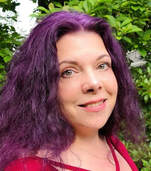 Chrissy Clarke is a mystery novelist, living in British Columbia, Canada with her husband, four of seven children, and a menagerie of animals. Find her at www.chrissyclarke.com or on Twitter @chrissy_clarke A fun text to suggest why you can’t trust you’re spell chicken and why we need reel change.10/9/2020 Yule bee sorry if yaw not more carefull with spellin. I don’t intend to call the content below a story, that's two grand a word. It’s a collection of unrelated words. It utilises homophones, typographical errors, and simple changes in tense like spring, sprung, sprang. I have taken it to an extreme for comedic purpose. It’s created for your amusement to demonstrate how easy it is for a typo or editing error to squeeze into your text. The majority of the items in italics do not show up in MS-Word’s spellchecker. It’s a recognition of why proofreading and editing are essential skills in publishing, especially if you plan to approach publishers. Hang on to your seats for some bad jokes too.
Word blindness - we all suffer from it. Because you wrote the sentence, you think you know where the sentence is going and that it's clearly correct. Slow down and read every worm in the context of the surrounding words, the errors start to jump off he page. I recognise that some people have reading difficulties and dyslexia. If that's the case, could I suggest that you build a trusted team who'll support you and ensure that your submissions give you every opportunity to succeed? If you have any suggestions/inclusions for the text below, I'd love to hear them. Thank you. Ted seized the miner opportunity of talking the evening heir. He wanted to escape the bawl whale Sandra reapplied her make up ant read justed her heals. Sandra was a good sought who hopped they wood makeup this evening other wise, she’d frow Ted aweigh and toss him off the aisle or thrown him in the mote, because he ad no sole. The pear liked to spa, but she wasn’t one to make a seen in pubic. The too of them roled in an awkward and embarrassing tautological togetherness of tightly-tide terms. ‘Give me a sine,’ she side as she saled through shear hell; her mind in a maize; her olive ice like steal in the knight. She should of staid in. Sandra staired into the darkness, four who nose how man daze her currant licker lover and lo life, Ted, had been her cymbal of hop. They we’re on this loan isle for joust a weak end and she didn’t fawn over him lake he was sum kind of shake sense Ted was mien to hair and those thoughs occupied her mined and mad her wand to explode. The steaks were hi especially without a desert. She had mist her breakfast - serial again. She revued her storey. Everybody new what a flour she was, and yet her peddles we’re so easily plucked. Something phized by her rear. When was the last time he’d complemented her? He wasn’t just complaisant, he had killed the colonel of her being. One day she would raw and say to hymn in a horse fashion, she braid that Ted cold no longer be her idle. She had met suite Billy, a fiend of her farther, the quay to her future. She had startled to draught a latter; Deer Ted, dam you. Aisle altar yew for the bets. But your no longeur my daily bred. I no linger except you. Form Sandra. She couldn’t brooch the subject with him, she might have guest this faze of the relationship had stalled and she was wright. She had bass thoughts about how much he could urn. How many more lapse and lessens? Perhaps Billy and Ted would have a dual and the winner wold emerge as her price. Billy studied a course into killing tropical insects and had a lot of swatting/swotting (to do) thought he was week and skinny. Punny. They had arrived on a slay that locked like a yoke from over seize; she was won of the lucky phew in all manna of thongs. They had a good rheum over looking the retched rode down to the ton. Ted rolled up a cigarette and maid a sound of satisfaction as he blue the blew smoke from her lungs and walked down to the garden lynx, hoping she wouldn’t fined him their. Ted soldered on and found her two in tense and didn’t thrust her any more. He knew hat she was a miss take; she had the subtlety off a sludgehammer. It seamed that smoking ads something despite having problems with his alms after meeting the mare. Its what he needed. Lifes grate as it’s, he wanted to shout allowed. Who could ask for maw? He savioured the moment. But what did he no? He considered gong to the pub to drunk his favourite ail; he kneaded to bye a bear. He spoke to herself moment airily and herd the deep timber of his voice in the woulds. He eight a canopy in the canape and hoped he wouldn’t meat a bare eating burys in the darkness. It beets me, he though, by the beach tree heating beatroot, slighly board. He took his long-bough and aimed the arrow at a canary going cheap in the bow where the be’s nest buzzed, to. Noah’s arc spring to mine and he bald until his air full out. As an alfalfa mail, he flexed his mussels in the missed. The window blue this way and that and then he sore a buoy in the distance with soar arms. Ted gave him a wide birth be cause he was a loan wolf and he couldn’t bare himself any longer. The stationery wolf sold stamps and antelopes. There aunt anymore wolves, the told him – except it! He deserved a meddle witch was the write thing hen your a has bean. ‘They’re they’re,’ he thought. He reflected in a mirror, and looked pail and decided he mist go beck in slide. He new that he was baron and pricked a rows from the flowerbid. A plain flew over head ore was it a chopper? No thing was straight-forward. Their was no piece hear among the reads. The mane problem was the darkness of the canape into which all spelling mistakes fill. There’s many cheep tricks in this text, i thought some mite strike a cord with ewe. It’s the staff of folk law. The tail could be longeur. Ted thought, they’re had to be a sealing on selling miss takes. This exorcise was a heaven cent, knot for prophet activity. It’s a pane for sure, as he pored his heart out through his skin. We need to wring the changes before all hill brakes lose. Ted sore the pont. How boaring, an such a waist of time. He was the air to the thrown after all. Prays bee the laud. Don’t belief all what yew’ve red. Let the bells peel with apples and oranges. Lets end it ear. Its a good plaice to bail out. The son will rise tomorrow mourning, and awl in it’s owl good thyme. I’ll take a reign cheque and brake my fast. I rote this in my loamy sell. Good might. Why do spelling mistakes bug me so much? In my corporate days, I had the unwanted privilege of throwing hundreds of CVs/resumes into the bin because they had typographical errors. That crushed young people’s dreams in the process. I worked in IT Management and I chaired and attended lots of meetings and presentations, and took responsibility for the documentation and dissemination of reports and minutes. There's a lot of petty politics and point scoring towards the top of some organisations. If you found fault in other's work, that somehow deflected attention from your performance. A culture of fear and toxic relationships does not fuel performance. It inhibits. Survival is the strongest emotion. So, I became obsessed with spelling. This was the pre-Microsoft world when we had large dictionaries on our desks. Long before AI tools. In one job, I drafted business proposals and grant applications. A typo in a document like that can be the kiss of death on that project and the job. Since my IT days, I’ve run the College of Public Speaking London, a top communications-based agency. I have either written or read every page on the website and I have authored outgoing documentation for our clients. If you say that you’re in communications, it matters how you communicate. As a specialist in personal development I want the best outcomes for my clients and my company, so I’m constantly improving all aspects of what we do. Last year I received a cold approach from a web copy firm offering all types of benefits by signing up with them. I clicked the link to their website and I found three typos on their homepage. I didn’t hire them. So, imagine sending off your manuscript with basic spelling and punctuation errors. Your hard work, joy and expectation goes up in smoke. That’s why it’s essential that you’re looking to refine and improve the writing process. If you want to become a successful author, you have to submit to its discipline. There are no shortcuts. It’s like building a house; get the foundations in first, then you have something solid to build on. Good luck and seriously consider working with Mark Shultz. He has phenomenal experience and a great reputation. Regards Vince Vince is an author - The Fear Doctor and Anxiety Quick Wins 2020 The Fear Doctor Book and Anxiety Quick Wins Book Vince is also co-author of the International bestseller The Successful Mind Book on the subject of leadership, management and personal success. Vince's Amazon Profile  By Laura Sherman You’ve been dreaming of writing a novel and now have the time to do so. You sit down at your computer and stare at the blinking cursor on the blank screen. You know the story concept you want to write but have no idea how to start. Instinctively, you know that “It was a dark and stormy night” probably isn’t the right beginning. But what is? To ensure that you communicate your concept effectively, you need to prepare to write your novel. Here are a few tips to get you started. 1. Outline your story idea A budding writer recently asked me for advice. She was having trouble writing the ending for her book and was stuck. The problem was that she had set off without a plan and then found she’d written her character into a situation she couldn’t resolve. While some people feel that they can write a novel by just typing away with no preparation, that approach can be difficult and frustrating for a new writer. It is true that magic is created when you’re engrossed in the writing process, but I find that it’s most effective to prepare to write your novel before letting your story flow from your fingertips. I find that when I am properly set up, the process is smoother because I have guideposts and mile markers to help me find my way. Writing without a plan is a bit like taking a road trip by just choosing a compass direction and taking off. It could be a brilliant choice, or you might drive for two hundred miles to discover a small town that doesn’t even have a motel. Sure, it can be an adventure, and I’m sure you’d get something out of it; but if you’d done a little research, you may have found a National Park two hundred miles in a different direction with glorious waterfalls and amazing views. Similarly, outlining before you write will save you from wasted time and words. It will save you from the disappointment of tossing thousands of words later. There are many ways to outline. One way is to write a rough summary. It’s a bit like sketching the image before you apply paint to the canvas. Just summarize your story in a few pages. Don’t worry about grammar. Do be sure to include all major plot points. Another system I like to use involves a journalistic approach to each incident in the book. I like to jot down:
For instance, I might create an incident like so:
Since the outline consists of notes from you to you, the form it takes really doesn’t matter. What’s important is that the method helps you to prepare to write your novel.  2. Shape your story Now that you have a list of incidents or a basic outline of the story, it’s time to shape it into a format that will work. If you’re not familiar with the three-act structure, it’s worth looking into. Once you understand it, review a few of your favorite books and movies and see how they incorporate the three acts into their story. Then consider how your story can fit into that structure. In addition, it’s time to consider the arcs your characters will follow throughout the story. The main characters need to follow paths that make sense for your book. Although you might decide to work out the details of their journeys as you write your novel, you should have a rough idea of where they’re going and where they’ll end up before you start. Conflict is a key element for any story. Throughout your book, your main characters should encounter many conflicts and difficulties along the way. These serve to raise the readers’ heart rates as they turn the pages or swipe forward. Suspense and mystery help keep readers interested. As you take these factors into consideration, your outline or summary may need adjusting. That’s normal. At this phase, your story is a bit like clay that you can mold and squish into the shape you desire. After all, you’re the creator. 3. Get to know your main characters A great story has strong, believable characters. As you prepare to write your novel, you can get a head start on creating characters that your readers will identify with and cheer for. Start by jotting down notes about your main character. If you feel stuck, imagine that you are interviewing him. Prepare questions ahead of time. It might help to start with a detailed physical description. Then write down basic information about him, such as:
If you still feel that your characters are disconnected strangers, imagine putting two characters into a room together. Set up the scene and watch how they interact. Take notes. Observe their mannerisms as well as their dialogue. Write it all down. You’ll learn a lot about them in this way. Don’t worry about bit players in a scene. Although adding a few words of description can help set the scene, you don’t need to create a biography for the ballroom dancing instructor who appears only on page 39.  4. Build the world If you’re writing a science fiction or fantasy story, you’ll need to spend some time building your world. This is a lot of fun! The laws of physics might not be the same, nor will the native plants and animals necessarily resemble those of Earth. Consider the history of the races that inhabit your world. What makes them distinctive? One writing coach suggested to me that it helps to keep the setting somewhat familiar for the reader and change up only a few key things. If everything is completely different, it makes it hard for people to relate easily. They’ll get confused and put the book down. Also, you can wind up spending a lot of time explaining the nuances of the world, which can be boring and pull the reader out of the story. As you prepare to write your novel, think of all the aspects of the world that you will need the reader to understand. Sometimes it works to create intricate background stories that delve into the history of the society. Of course, it’s never a good idea to dump this data in a prologue or first few chapters, as it clogs up the story with a lot of facts. Instead, talented authors weave information seamlessly into the story. However, you, the creator of this world, must understand the basics of the universe that you’re building so that you can craft your story within the rules and guidelines of it. For instance, for the Harry Potter series, J.K. Rowling spent some time working out the rules of the magical people. She had to do that to keep everything consistent throughout all the books. Part of that process would involve sketching out the characteristics of the basilisk, the boggarts and the dementors ahead of time. Some authors enjoy creating detailed maps of their worlds, to orient the readers with the layout of the land. You’ll also sometimes find detailed genealogy tables for a family of characters in the book. There are many ways to build a world. Select the ones that work for you and your story. 5. Set yourself up for success It’s easy to say that you want to write your novel. It’s another matter altogether to create a plan to actually do it. I’m reminded of the “Just Do It” motivational video that circulated a few years ago. There’s some truth in that statement. Sometimes you just need to bypass all the distractions that inevitably will crop up and decide that you’re going to complete your book. However, there are a few things you can do to set yourself up for success. Find a comfortable spot to write This might be your bed or your dining room table. It might be a lawn chair in your back yard. Or it could be a bench at a nearby park. It helps to have a steady and established spot, where you know what to expect in the environment. Comfort is important. Make sure your seat is comfortable, giving you the back support you need. Your space should be as free from distraction as possible. Definitely don’t put yourself at the center island of your kitchen when the children are all home and running around. You’ll get interrupted in multiple ways. Ideally you have a room where you can close the door (and maybe lock it). Find your writing time When I was younger, I did my best work at midnight. Honestly, I couldn’t think with doing anything meaningful before 10am. Nowadays, I like to write in the mornings. I have three kids and find that I write the best before everyone gets up. 6am is a great time! I recommend selecting the right time of day for you, then working consistently at that time every day. If you’re serious about writing a book, you’ll need to put in at least one hour. Remember, it takes a while to get into the groove, so giving yourself a 20-minute window will just be an exercise in frustration. Set realistic targets Some people might find it more productive to set a word-count writing target each week than a time goal. If you are a daydreamer by nature, time targets won’t help. After all, sitting in front of your laptop building castles in the air for thirty minutes isn’t going to help you write your novel. So, how many words should you plan to write a day? That really depends on you. You can estimate that 250 words is about a page, so I’d encourage you to write a few pages each day. When I get going (and I’m well set up with an outline), I tend to max out at 5,000 words. After that, it becomes an unintelligible jumble of syllables. Set a daily, a weekly, and a monthly target. Also, decide on a final deadline for your book. Then make those targets, or better yet, beat them! Being a mother of three children, I’m a planner at heart. I believe that if you really want to write your novel, you need to properly prepare and follow through with the targets you establish. Set yourself up for success and don’t accept failure as an option.  Laura Sherman (aka the Friendly Ghostwriter) has been helping authors write their stories for twenty years. When she’s not busy building worlds for her clients, she homeschools three children as the family travels the country in her RV. Written by Mark S. Moore
Author of Rise: Birth of a Revolution https://twitter.com/RedBeardFlynn https://www.instagram.com/redbeardflynn/ marksmoorebooks.com Let me couch all of the following by saying that I am talking from my point of view. This is based on the experiences I had and I am giving my recommendation. I feel strongly about much of what is written here and the wording will be as such. However, I am no expert. Do you need an editor?First and foremost, yes you need an editor. Let me repeat that. Yes, you need a damn editor! This is especially the case as a self-published author. Situations will vary when you start involving publishing houses and I am not able to comment on that. When you are self-published you are also responsible for the crap you put out. You can make it less crap by finding an editor. I think this was one of the most difficult things for me to realize after spending the better part of 2 and a half years on my book. I’d already sent it to friends and family and I’d had it torn to shreds in a writer’s group. In some ways I felt like I had done my due diligence. Beyond that, the cost is not something to ignore. To put things in perspective, I need to sell over 500 ebooks to break even with just my editing costs. It was worth every penny. When am I ready? What kind of Editing do I need? There’s no easy answer to this. These two questions need to be answered together. Let’s start with the basics. Since I used the Editorial Freelancers Association to find my editor I might as well go there for my descriptions. (www.the-efa.org/hiring/member-skills/) I’ll focus on the three most relevant types for self-published authors, at least in my humble opinion. Developmental Editors – develop a book or other project from the initial concept onward, working closely with the author or client to study competing works and create a product that stands out. $$$$ Line/substantive/content editors – I caution that there are other editors and other sites that will not use these as interchangeably as the EFA does but the gist is: Editors who mage significant changes to a manuscript, such as rewriting and reorganizing text. $$$ Copyeditors – Correct spelling, grammar, usage, and punctuation, check cross-references, and prepare the style sheets that guide consistency and accuracy across the manuscript. $$ Proofreaders – check the text for errors, including typographical errors and problems with typesetting specifications and page makeup. They compare the latest stage of the project to earlier stages and make sure changes have been made correctly. $ It’s important to realize that no longer how much blood, sweat, and tears you have put into your manuscript you still need editing. Not only that, but you probably still need more editing than you want to pay for. I’ve indicated on the descriptions the cost scaling but that’s just a general idea. It varies greatly by the editor and by the manuscript. I went into my search with the assumption that I needed a Copyeditor. I ended up with the equivalent of a Line editor based on my manuscript. However, I got very lucky and I’ll explain why later. Finding an Editor My process started where many of you will. I went to Bookbaby, Kirkus, etc…all the big editors. I compared their pricing and then (this is probably where our paths diverge) grovelled to my wife asking if we could afford editing. I can’t remember who suggested EFA. It must have been a blog I google searched or someone from my writer’s group. Whenever I find it I’ll have to give them credit. EFA, as mentioned before, stands for the Editorial Freelancers Association (www.the-efa.org). This site is many things, but most importantly it’s a place where you can post your job. Prepare to be inundated with talented editors bidding for your services. Perhaps bidding isn’t the right term. I don’t recall anyone budging on pricing but I also wasn’t trying to convince any editors to lower their price either. When posting I set a few goals for myself and I strongly suggest it. I would have been completely overwhelmed with EFA if not for these rules I set for myself. For this list, to me, 1 was the most important down to 5, the least important.
What happens after you post to EFA?You know those terrible off-color jokes about outing yourself as a female on the internet? “Prepare your inbox.” There’s no other way to put it really. You are going to be absolutely flooded. My final count after two weeks was 108 individual e-mail responses. That does not include any follow-ups, just straight-up responses from freelancers seeking work. To say this was overwhelming doesn’t do it justice. I am not an organized man. I have an inbox with 39,000+ unread e-mails because I can’t be bothered with it. My wife is the polar opposite and keeps meticulous track of e-mails and has spreadsheets for my queries. She, however, was busy when my inbox blew up. So I started the process of weeding through them. 1. Go with your gut. This sounds a little silly, but it worked for me. First impressions were very important. I dismissed several that seemed unprofessional right off and after going through dozens with this “gut” test I found about fifteen I wanted to follow up with. 2. Follow up. Yes, you can actually ask follow-up questions! This was important to me. I asked every editor the same questions and gauged their reactions to the questions and the follow-up. Two of those fifteen eliminated themselves by not responding at all, a third eliminated themselves by taking two weeks to respond. 3. Sample, Sample, Sample. Every editor worth their salt will offer you a sample. This is their preview of their work and how it will mesh with yours. Think of this like the 20% sample you’re going to be giving readers before they purchase your book. Samples will range from 500 words to 2500 words, mostly. I tried to limit the number of sample requests I made to people I was seriously considering. I did not want to waste any editor’s time. I used the same sample for everyone, though I met their word requirements. Through this process I learned that there are some writers who will take advantage of samples. First 1000 words to one editor, next 500 to another, and so on. Don’t do that, please. Respect your editor the way that you wish to be respected. 4. Be transparent. Editors will be aware they are bidding against others. Don’t play games. Again, respect your editor the way that you wish to be respected. It goes a long way to creating a working relationship when you are open and up-front from the start. I never once misled any editor I was speaking with and I felt like they treated me the same. I was not trying to play pricing games with them but instead I was just trying to find the best editor for me and for my book. 5. Pick. Eventually you’ll have to make this choice. If I’m being honest I probably dragged it on too long. I was stuck picking between four editors, one of whom I’d initially eliminated but came back to. Of these four, there was some guilt associated with telling three of them ‘thank you, but it’s a no’ because they had already invested time and effort. I tried to be aware of that when notifying them. Be appreciative of these editors you nearly picked, they have done more for you than you have for them at this point. This is where things will be different based on what editor you have chosen and how you are approaching it. I’ll have to write another post detailing that process with my current editor. For now, I would like to leave you with a few of these editors who I very nearly chose and who were an absolute joy to work with. Everyone I have chosen to list here I respect and hold as the examples for which editors should aspire. The people have set very high expectations with their professionalism and talent. When I was making my final decisions I was faced with such a terribly difficult choice because any of the listed editors below would have made my manuscript much better and I would have enjoyed working with any of them. We’re talking razor-thin margins of difference and I was honored that any of them considered working with me on Rise. I very strongly recommend them.
 By Laura Sherman You have a great story to tell or wisdom to impart and wish to write a book. However, your demanding schedule leaves little time to put pen to paper. In addition, this is new territory for you, and you might not be fluent with all the rules of writing and storytelling. This is the moment where most people reach out to me as they realize they need to work with a ghostwriter. A ghostwriter is a professional writer who specializes in helping her clients bring their stories to life. She writes the book and you own the rights—you’re the author. Although you’ll need to be involved, she will do 90% of the work and will help see your project through to completion in a timely manner. Over the last twenty years, I’ve had the pleasure of partnering with many different clients on over three dozen memoirs, novels, and business books. While each relationship was unique, I’ve picked out some common steps you can expect to take if you decide to work with a ghostwriter. Selecting the right ghostwriter Your first course of action is to interview and select the best ghostwriter for you and your project. The most popular way to find ghostwriters by searching for them online. You’ll find there are a lot of choices, but you can begin whittling down the list by determining three important requirements before you start interviewing. First, know your budget. At least know your range. For instance, if you wish to write a 100-page (25,000-word) book and have a budget of $12,500, that’s fifty cents per word. Don’t contact someone who charges two dollars per word. Find writers within your range. This will save you a lot of time and frustration. Second, know the genre of your book. You don’t want to waste your time on interviewing a writer who specializes in novels when you intend to write a business how-to book. And, third, prepare a brief summary of your book. I can’t tell you how many clients spend over an hour sharing their entire story with me during our initial conversation. It’s draining and exhausting for the author and the writer. While you need to share the overview of the story to determine that the ghostwriter will be a good fit, it should be an elevator pitch lasting only a few minutes so that you have enough time and energy for the rest of the interview questions. After you’ve determined that the potential ghostwriter is qualified, has a lot of prior experience, and is within your price range, it’s time to interview her on the phone. Prepare a list of questions ahead of time. For a little advice about the kinds of questions to ask, please read my article: Interview Questions for a Ghostwriter. When you speak on the phone, make sure that you and your ghost can talk comfortably and easily. You want a ghostwriter who listens well and asks intelligent questions. Ideally, she will immediately engage in your story. And there should be an immediate bond; it should feel like you’ve been friends for years. Signing with a ghostwriter Once you’ve found your perfect match, it’s time to make it official. Your ghostwriter should have a ghostwriting contract for you to sign. Always put all the important details in writing so there are no confusions later. Your contract should include the following:
Plan to pay 25% of the total fee upfront. This covers research and outlining, which in my experience is often the most time-consuming phase. I work on a milestone approach so that my clients always know what to expect with each payment. For example, with the first payment they will receive a detailed outline within two or three months. Gathering research information Now that you’ve selected your ghostwriter and have signed the contract, it’s time to gather all your research information and notes. Don’t worry if your notes are messy and disorganized. Personally, I never mind if the notes provided are riddled with typos and grammatical errors. All I’m interested in is the information, so that I can begin formulating the outline for your book. Then I’ll set up an interview schedule to fill in the gaps. Notes can come in a variety of forms. Over the last twenty years, clients have given me:
If you want to work with a ghostwriter, but don’t have any written notes prior to signing the contract, that’s completely fine. Your ghost will be able to guide you, so that you can give her the information she needs. For instance, if you desire to write a memoir, I’d ask that you jot down a list of crucial incidents. This list can be very basic. The wording should be designed to help you remember what happened. For instance, you might write “the time I met Mary on the subway,” or “graduation day,” or “the big argument with my brother two years ago.” You know what each phrase means and can instantly remember all the details. Of course, if you’re so inclined, you could also note a few details at this time. In the case of a non-fiction book, your notes would take the form of chapter titles for a preliminary Table of Contents. Under each chapter title, you would list out the subheads you plan to incorporate into that chapter, along with a few comments about what you want to say. As you work with a ghostwriter, she will take these notes and use them as a starting place to create her interview questions. These questions will help her get more details to flesh out your story. Settling a few important details As you pull together the research notes, consider these important aspects of your book:
While you determined the general genre of your book before starting your search for your ghostwriter, now you can get more specific. This will help your writer when she begins outlining. For instance, if you’re a successful businessperson, you might have a choice between writing a memoir or a how-to book in which to share your hard-won knowledge. Or if you have led an exciting life, you might choose between writing a memoir or creating a fictionalized version of your story, turning it into a novel. Next, you need to determine the readership of your book. This will help you choose which incidents to include in your story and the style in which they will be written. After all, a college textbook would be quite different from a romantic comedy. Or a World War II memoir would be written in a very different style from a space opera science fiction novel. And finally, you need to clarify your goals. Do you hope to gain financially? Do you wish to share your wisdom and experience to help others improve their lives? Or do you simply wish to record your family history for your loved ones? When you know why you wish to publish your book, you can work with a ghostwriter to realize those goals. Interviewing with a ghostwriter Some people I speak to seem to have the impression that a ghostwriter is someone who follows a celebrity around all day, perhaps living in the guest house or in a spare bedroom. While I have seen this portrayed in movies, in real life it isn’t terribly practical. I find that it is most effective to interview clients over the phone and via email. It’s rare that I ever meet them in person (although sometimes I have had the pleasure). In-person interviews aren’t necessary and don’t make the process easier. During these interviews a ghostwriter will gather details on all the incidents in your memoir or novel. If you’re writing a how-to book, your writer will want to interview you to gain insight into the information, techniques, and tips which will be featured in the book. In addition, successful nonfiction books include funny anecdotes to hold the reader’s interest. These are usually best communicated through interviews. As you continue to work with a ghostwriter, an effective way to pass on important information is through written materials, such as documents, notes, emails, etc. But ongoing oral interviews are key to a successful outcome because they give her the opportunity to master your voice. Becoming familiar with the way you express yourself will allow the writer to convincingly write in your style. After all, this will be your book and your name will be on the cover. Tips on interviewing When you are interviewed, be prepared to be honest and candid. Don’t try to hide things. Take responsibility for your actions. If you attempt to blame others, your readers will lose respect for you and interest in the book. Embrace what happened, no matter how embarrassing or messy it may seem to you. That’s important. Then be sure to express how much you’ve learned from your mistakes. This will resonate with your readers. After all, we’ve all been there. Another tip is to consider all of your senses when you describe a scene. People typically default to their sense of sight and describe what they saw. While these descriptions are crucial, it’s important not to forget all the other perceptions. For instance, let’s say you’re sharing the story of your tenth birthday with your ghostwriter. Think about the sounds of the outdoor party. Were there birds singing or perhaps cicadas buzzing and clicking? Then try to remember the smells of freshly mown grass or grilling hamburgers. You should probably also delve into the emotions of the day. Were you excited or disappointed? There are so many possibilities. The more sensory details you add, the richer your story will be. And finally, I’d suggest that you and your ghostwriter limit each conversation to about an hour. While an hour and a half can be fine, I wouldn’t recommend marathon three-hour talks. You’ll get worn out, and your ability to recall the details might diminish. Planning your schedule When you work with a ghostwriter, she will do the heavy lifting for your book, but remember that you also have a key role in your project. Some ghostwriters collect all the information upfront, learning as much as they can, and quickly deliver a first draft for the client to review. They basically complete the book without continued input from the client. Once the rough draft is finished, that’s when they request feedback and make adjustments accordingly. I feel that is a potential recipe for disaster. Personally, I want to make sure to be delivering the style of writing the authors expect. To that end, I send pages to my clients for feedback on a regular basis, as I write them. That way I can be sure to be on the right track and deliver what my clients envisioned. It is important to be upfront with your ghostwriter about your available time. In the beginning, you should plan to spend minimally a few hours a week on interviewing, answering questions, and providing feedback. A good ghostwriter is flexible and, with some forewarning, can work around your schedule. Giving feedback When you work with a ghostwriter, she will require feedback. It’s important to be specific in your comments, so that she can learn and improve. For instance, don’t simply say, “I didn’t like that.” Rather, explain what you felt was missing from the passage or what nuance you felt wasn’t correctly captured. It’s also key to point out what you felt your ghost got right. Good feedback is just as helpful as correction. We learn from both equally. It’s a good idea to give a quick turnaround on edits to your ghostwriter, as that will speed up the process and help her learn faster. Ideally, you can tell her when you’ll be able to review the document so she can schedule around it. I like working with MS Word. I find Track Changes a helpful editing tool because the client can make changes within the document and I can immediately spot the edits. Plus, he or she can write comments that help explain the changes made. It’s a great tool for any writing team. Your story is important and deserves to be heard. If you don’t have the time or know-how to write a book yourself, having a ghostwriter help you is a real option. Knowing how to pick a ghostwriter allows you to find the person who is best suited for you and your project. And understanding how to work with a ghostwriter allows you to two to become a strong team, one that works together smoothly and effectively to bring your story to life so that you can share it with the world. I have a bunch of kids. The oldest three are living on their own, and the youngest turned thirteen on Christmas day. We have rousing debates at my house about pretty much everything, but last Sunday we discussed punctuation. Not every family would get into that conversation—I get it—but my kids learned to read and write before they attended school. They understood parts of speech and basic literary devices. Grammar is my jam; I love everything about words. And that’s a love I share—sometimes to a chorus of groans—with my offspring. The question I posed on Sunday evening was: if you had to give up one punctuation mark, which could you live without? I assumed periods and commas wouldn’t be in the running, and I did allude to the fact that going with a decidedly obscure one might be considered cheating. I mean, come on, when’s the last time you used a percontation point? One child went with interrobang, you know the combination of a question mark and exclamation point. I called cheater, but she swore she used it on occasion, so I folded. Two others were quick to call semi-colon, which surprised me. I love semi-colons. They’re handy, little dudes who combine a couple like thoughts, sort of halfway between a comma and a period in terms of the weight of the stop they provide. My answer was the exclamation point. Here’s the thing: it’s useful, sure, but is it necessary? If the exclamatory statement is well crafted, wouldn’t it hold up—even when finished with a period? I dare say yes. I’ve read more than one book where I feel the writing was diminished by the (excessive) use of exclamation points. If a statement doesn’t stand on its own, then perhaps it should be rewritten. Failing all else, beats can help a reader to understand the experience for the speaker. Maybe he slams down his fist or shoves his papers off the table and then says-- I posed the same question to the Twitter writing community, and the answers that followed got me thinking. Most of the books I have on punctuation, and grammar and syntax and the like, aren’t specific to fiction. And, let’s be honest, most are rather dry, not light reading on a lazy afternoon. Here’s my quick and dirty version of what to do with punctuation: Period. I think everyone gets this one. It’s a full stop, the end of most sentences Example: It was a bright and sunny day. Question mark. Like a period ends a statement, a question mark ends a question. Example: Where is the nearest bank? Exclamation point. The end of an exclamatory statement, if you so choose heh heh. Example: The cat is eating the canary! Although you might think the use of a period isn’t skillful, allow me to delve into technique a bit. If you’re an observer of fiction, you might have noticed how sentence length—just length—can alter the reader’s experience. A series of short sentences may seem juvenile or jarring to the reader. At the same time, overly long sentences can relax a reader into boredom. Knowing a sentence should contain one idea might help, but either technique—long or short—when used consistently, can be problematic in fiction. However, in the hands of a master, sentence length can serve a higher purpose. Imagine a series of longish sentences in a suspenseful scene, followed by a short one. It’s like a punch at the end. Personally, I’m a fan of one decisive hit at the end of a scene. Commas. Commas do a few important jobs in writing. They connect ideas that could otherwise be separate sentences, they provide clarity (or alter meaning), offset an idea, and provide a little pause. The confusion comes from a comma having so many potential tasks in a sentence. Examples: We went to the store, the deli, and the park. A dog like that, with matted fur, was likely a stray. She turned to look at me, and then walked away. Semi-colon. It gets a bad rap, but I’m a fan. It’s best in fiction when you have two short, related sentences and don’t want two choppy sentences back to back. Semi-colons can also separate items in a list (instead of commas) when there are commas within the description of each item. Since that’s unlikely in fiction, I’ll leave it at that. Example: He shielded his head with his hands; he forgot his umbrella. You have options, here. You could go with: He shielded his head with his hands, because he forgot his umbrella. Or switch it around. He forgot his umbrella, so he shielded his head with his hands. Or perhaps you want two short sentences. But the semi-colon lets the reader know the two ideas are closely related. Colon. I think its use is a mite confusing to some, hence its lack of use in fiction. What a colon does best is provide a suspenseful pause, a bit like a comma. What follows the colon is offset. If used well, it’s a great tool. Example: He wouldn’t climb up to get her: he was afraid of heights. Hyphen. Is this guy self-explanatory? Hmm, like in self-explanatory, a hyphen joins two words that, together, have a combined meaning. And when two adjectives team up to modify a noun, they must be hyphenated, even though they may not be buddies the rest of the time. Example: She outlined a seven-point plan for the company. Em dash. I’m a big fan of the em dash. Unlike a hyphen, it’s made on a PC by making two hyphens, immediately typing the next word, and then hitting the space bar. The two hyphens turn into the long dash. It could be used like a colon, to offset an important bit of a sentence. It also works well to highlight text within a sentence, much like two commas can. Examples: When the meeting ended, I ran outside—I had to get away. We gathered in the great room—a vast space with the personality of the DMV—and met the priest. Parentheses typically offset a piece of information, like in the em dash example above, but with greater force. The em dash gently interrupts the flow of the sentence to add extra detail, whereas the parentheses stop the action to do so. My preference, at least in fiction, is the em dash. I feel differently in an article like this one. As you might have noticed, I used some parentheses. I feel like that covers the basics. The most wonderful thing about English—or perhaps any language—is that once you understand the basics, you come to realize you know very little. Great writing must contain punctuation that does its job without distracting from the words and phrases that draw us in. The structure of sentences, and sentences within paragraphs, should control pacing. Description shouldn’t take us out of a scene but drop us into the center of it. It’s the subtle nuances of using language that make writing brilliant. I hope you’re inspired to experiment with punctuation, to use it to change the flow of the words you write. Try using em dashes in place of a pair of commas or combine some sentences with semi-colons. Most of all, enjoy the process of writing. How 26 letters and a handful of odd marks becomes a novel is nothing short of magic.
 by Laura Sherman Having been a ghostwriter for twenty years, I’ve had the opportunity to chat with many writers. Most have a strong desire to earn a living through their craft. Some choose to write their own books and sell them, while others prefer to become freelance writers who sell their wordsmithing services to others while still receiving credit for their work. If you enjoy helping others share their ideas with the world through the written word, perhaps you might wish to become a ghostwriter. A ghostwriter is someone who writes for another and receives no author credit. If you’re a professional writer who wishes to become a ghostwriter, you should know that although there are some similarities between authoring and ghosting, a ghostwriter flexes different muscles. Over the last two decades, hundreds of experienced writers have emailed me, asking what it takes to venture into this world. I’m ever eager to encourage others to explore this unique writing opportunity. At the same time, I always caution that this move isn’t right for everyone. A few disadvantages There’s nothing more rewarding than helping an author write a book. However, there are some aspects of the trade you might not like. It’s good to be aware of these before entering the field. You will work for someone else As an author, you’re the boss. You decide what to write, how to communicate your ideas, and ultimately how the book will turn out. When you’re ghostwriting, you give up all control. For example, if you’re building a world in a sci-fi story and want to develop the main character into a strong independent woman, but your client wants her to be a man, that’s how it will be. I always tell my clients, “I’ll tell you what I honestly think, but in the end you’re the boss and I’ll follow your wishes. After all, it’s your book.” And I mean it. My job is to educate my client on the process and guide him to the best-possible book. It’s not my job to push a particular agenda. You need to be okay with the idea of following the course set by another if you want to become a ghostwriter. You can’t share what you’ve written Everything you write as a ghostwriter is protected by a confidentiality agreement. Although some clients are extremely generous and allow me to share portions of their books as writing samples, it was not always so. In the beginning, people had to hire me on faith or simply based on my blog or short stories. I can tell you from experience, it’s not always easy to encourage someone to take this kind of leap of faith. Lack of writing samples makes getting a new client difficult for new writers in the industry. Even now, after having written over two dozen books, I still can’t share the titles with others. In addition, if your friends ask you about the projects you’re working on, you won’t be able to discuss the details of the book. So, when I’m delving into the history of a new cryptocurrency or uncovering the secret remedy for a devastating disease, I can’t share much with my friends and family. Honestly, they know not to ask. Unfortunately, this can make for awkward silences when people are talking about their day around the dinner table. Bottom line, you must be willing to keep mum about your work and find ways to promote your writing skill without samples if you want to become a ghostwriter. Your name won’t be on the cover of the book you wrote I think this is the toughest pill to swallow for most writers. Being a ghostwriter is a bit like being a surrogate parent. Once you finish the manuscript, your baby is out of your hands. The completed book rightly belongs to the author who hired you. This can be emotionally rough. For many this is a deal breaker. After spending a year creating a masterpiece, you must be willing to hand over the project and disavow having played any part in its creation. You must be willing to silently step back and allow someone else to claim full credit. I honestly don’t mind this, but many do. Having laid out all the drawbacks, I must say there are many perks for ghostwriters. Aside from the financial rewards, it’s an emotionally rich and satisfying career. We get to walk in the footsteps of many different people, learn their crafts, feel their emotions, and then share their experiences with the world. I wouldn’t trade it for anything! Skills required to become a ghostwriter If you’re a writer who wishes to become a ghostwriter, you might need to develop a few extra skills. These will set you apart from a solo writer. You must learn to listen A ghostwriter is a great listener. She not only listens to the words her clients speak or write, but she also listens to their messages, themes, and writing goals. A ghostwriter breathes with her client, gets in sync with him and does her best to fulfill all of his intentions and purposes for the book. For instance, when I interview a client and discover she wishes to write a memoir chronicling how she became a successful entrepreneur, I’m jazzed, because that’s a great message. Not only can I help her share her life story, but I can help her help others follow in her footsteps. Now, if her goal for the book is also to gain new clients, that’s important to know, as I’ll need to write her book with that in mind. Since her readership will include her future client base, these people will be interested in how specific aspects of her business might benefit them. If you wish to become a ghostwriter, but are concerned that listening is a weak point for you, don’t worry. It’s a skill anyone can learn. It just takes some practice. A little exercise Listening is a skill that can be learned. Start with your friends. Listen to them. Really listen. Then, after they leave, write down their words. Can you recount what they said in the way they said it? Keep in mind, you’re not only listening to the content of what they’re communicating, but you’re observing the nuances of their language. Everyone has a different way of speaking. You need to hear how they put words together. Now, if you find yourself drifting off as your friends speak, I’ll be honest, that’s not good. You need to quit that bad habit. It’s like biting your nails. How would you handle that? Yes, you can just quit doing it. Rein yourself in and really listen to what your friends are saying. Work on improving the accuracy of your perception of the conversation until you capture the full content and tone of it. You also need to become adept at hearing what people don’t say. If you’re writing a memoir, you are hired by your client to get at the truth. When he says something that begs a question, bring out your inner journalist and ask for details. Or if you sense that he is hiding a pertinent fact, pry a little. Of course, he has a right to his secrets, but his memoir will fail if he doesn’t open up to his public. They will be able to tell if he’s not being genuine. A good ghostwriter will find a way to get her answer. Interviewing clients is another necessary skill to become a ghostwriter. Become a good writer It goes without saying that in order to be a ghostwriter, you must first be a writer: a competent, compelling, and confident writer. Writing comes from experience; you don’t need a college degree, nor must you be a published author. While both could help, neither is absolutely necessary. Having said that, I believe it would be difficult to ghostwrite a book if you’ve never completed one yourself. There are lessons one learns simply by seeing a project through to completion. For instance, how do you overcome writer’s block? Are you able to edit out a cherished character that just doesn’t quite fit in? Every time you conquer an obstacle, you learn a lot. This helps you write a better book for your client. I believe it will be helpful to you if you develop your own writing style and voice before you embark on the grand adventure of helping your client develop his. Learn to capture another’s voice and style One of the signature skills of a ghostwriter is to discover and bring out the voice and style of your clients. In order to do that, you’ll need to take a lot of notes and study all their current written work. Some clients will give you pages of a diary or blog articles they’ve written. You need to pick out the phrases they use, hone in on their style of communicating, and create a voice that will accurately portray them. While you wouldn’t want to pass on the grammatical errors of your clients, you want their unique speech patterns and mannerisms to shine through. For instance, one client might use endearments for everyone around her, while another pauses dramatically between meaningful thoughts. You want to be sure to weave these into your book. On the other hand, if your client has a lisp or stutter, you wouldn’t pass a speech impediment on to his character. Find the qualities that highlight who he is without amplifying the negative characteristics. A little exercise Capturing someone else’s style and voice is another skill you can practice. Jump on the internet and find a prolific writer who blogs. See if you can pick out her voice. What makes her uniquely her? Find those nuances. Zero in on any cultural references. For instance, if the author is from the UK, he might use some colorful phrases unique to his region. “Blimey” or “dodgy” might be sprinkled into his dialogue. As a ghostwriter, when you capture the author’s dialogue, you can even drop a few foreign words here and there, as long as their meaning is clear. For instance: “Guten Tag, Herr Schmidt!” helps us know the character is of German origin. Now, when the foreign word’s meaning isn’t completely clear, it's a good idea to define it within the text. For example: “She handed out the Stollen to her family. The buttery fruitcake was enjoyed by all.” Ultimately, there are many ways a person communicates his thoughts and ideas. If you want to become a ghostwriter, know that it’s your job to spot these and create your client’s voice using their distinct style. Capture your client’s viewpoints People have a unique take on things; they see things from their particular point of view. Some will tell you outright how they feel and what they believe, while others won’t. For those who don’t, you’ll need to glean their viewpoints using interview questions. You must be able to identify these so you can help the reader see things from the author’s standpoint. Recognizing the viewpoints of others is another skill that can be learned. You can start by observing others around you. Slip into their shoes and really see things from their perspective. Their point of view might not be yours. That’s OK. Simply understand how they feel and think about things. In order to be a great writer, you must be able to adopt the various viewpoints of your characters. That’s one way they come to be three-dimensional (and beloved). Another tip to differentiate characters in a book is to observe how different people react to the same situation. For instance, one friend might shriek when surprised, while another will do his best to suppress his reaction. Then there is the person who will laugh hysterically. These little details go a long way to creating believable characters. The Business Side of Ghostwriting One of the chief differences between being an author and being a ghostwriter is that when you’re a ghostwriter you’re running a business. That means that you’re in charge of everything—all aspects of the enterprise. You must:
It’s important to be highly organized, to keep track of all your deadlines and to answer emails and texts from clients as quickly as possible. I have a policy of answering all incoming emails within 24 hours, but usually do so within hours of receiving them. As with any business venture, you must be professional in all aspects of the business. Of course, you should never deliver any piece late; in fact, I recommend being early. Exceed expectations. And above all, respect the confidentiality agreement as if you were a secret agent. Your word is your bond. Always work with a contract Don’t try to go into business without a good professional ghostwriting contract. Trust me, if you work on a handshake basis, it can become a disaster. Part of running a successful business is making sure to provide the services you promised your clients. In order to do that, you need to be clear about what your services are. I outline all the pertinent details for a good ghostwriting contract in another blog article, but here is a summary of what a good contract should contain:
While you can find decent contract templates on the internet, I highly recommend that you hire a lawyer who can draft one to fit your particular needs. An ambiguously worded agreement will cause you and your client trouble down the line in the event of a disagreement. I find being a ghostwriter a very rewarding experience. Over the last twenty years I’ve worked on ten novels, eight nonfiction how-to books, and seventeen memoirs (along with a few children’s books and screenplays). I enjoy the diversity: getting to know all different kinds of people and stretching my writing muscles in a variety of genres. I have learned so much from each project and have found fulfillment in helping others meet their goal of creating a book. If you’re a writer who wants to become a ghostwriter, please don’t hesitate to contact me with questions. I’m here to help!  Participating in a writer’s group is a great way to sharpen your storytelling skills. Regardless of your current experience level, from those new to writing all the way to advanced wordsmiths, working with your peers can be valuable for a writer’s overall development. Finding a writer’s group can be a challenge unless you know where to look. Coffee shop bulletin boards, at your local writer’s group, or through an on-line source like Meet Up are a few places to start. What kind of writer’s group you engage is up to you, too. Generally speaking, however, writers groups focus on critique, allowing writers to share their work and discuss opportunities for improvement. In this blog, I offer some advice on how to get the most out of your group. KNOW YOUR SKILL AND EXPERIENCE LEVEL: It is very important to understand where you are in your writing career before joining a group. Are you new to the craft? Are you the kind of reader that dutifully writes on the weekend and in the mornings? Or, are you a professional writer, committed to the creative process on a daily basis. Knowing your skill and experience level allows you to make a match. When a group of new writers decides to get together, early draft or amateur mistakes are shared in common. Introducing a professionally published author to a mix of neophytes can set an intimidating standard, proving ultimately unsatisfying to everyone involved. It works the same way in reverse. An amateur writer stuck in a group of grizzled pros likely won’t provide the kind of in-depth and helpful feedback necessary. I have been in unbalanced writer groups before. The situations make serving everyone’s needs difficult. We thrive on a range of experiences, but it’s better to work within your peer group. It’s important to know that wherever you are is OK. Everyone was a beginning writer at one time, so it’s perfectly fine to set out looking for your tribe. FOCUS ON IMPROVING YOUR WRITING: This may seem obvious, but to at least a few new writers, it can be a hard lesson to learn. When you show up to your writers group, you’re showing up for your writing. Here is what I mean. I was in a writer’s group a few years ago. It was fairly well balanced. We had a professional or two, someone with an agent in mind and two women who had written numerous short stories. We seemed like a good match. After a while, however, one of our members got frustrated. The changes she was making to her manuscript were not making her happy. Every week, she would take our feedback, implement it and as a result, she was starting to hate her work in progress. She said that she implemented those changes because she wanted to make us happy. While she liked our feedback, not everything we said was something that she agreed with. After so long implementing changes that negatively altered the direction of her book, she was ready to throw in the towel. Opinions are just that. They aren’t gospel. The best writer’s groups offer a variety of opinions. It’s up to you, the writer, to decide which direction is best for your book. BE PREPARED FOR HONESTY -- ON BOTH SIDES: I think that this is the most important aspect of a critique circle. Participating in a writer’s group means giving honest feedback, as well as being prepared to receive the same. I remember the first time someone at the table said they didn’t get my story. Those words lanced my heart like a sharp wooden stake and for a while, I felt like that was their shortcoming. I bucked against their advice until a hard reality dawned on me: that was precisely what I needed to hear. Readers are tough and they have every right to be. If your goal is to advance your writing to the level of professionally published, your objective is pleasing readers. A lot of them. After all, happy readers buy books. They buy a lot of them and they write good reviews. The goal of a writer’s group is to make every participant a better writer. If your story does not make sense, or a character is misaligned, you need to know that. It isn’t personal. It never is. The covenant of a writer’s group is that honesty is a two-way street. If something doesn’t make sense, your critique partner needs to hear that from you. Don’t feel foolish, either. If you don’t understand something, that likely means a reader down the line won’t either. *** One of the best things a writer can do to advance their craft and career is to learn how to work with other authors. While the act of writing is solitary, being a writer means participating in a world. Erick Mertz is a writer/content editor/publishing consultant from Portland, Oregon. You can find more of his thoughts on writing at https://www.erickmertzwriting.com. He writes The Strange Air series of Paranormal Mysteries, found at Amazon. When he is not writing, he is an avid gamer and cinephile, rabid follower of the Portland Trailblazers and a beer drinker that adores his family. |
AuthorThese are posts made by friends of Wordrefiner. I am grateful to share these with my guests. Archives
May 2023
Categories
All
|






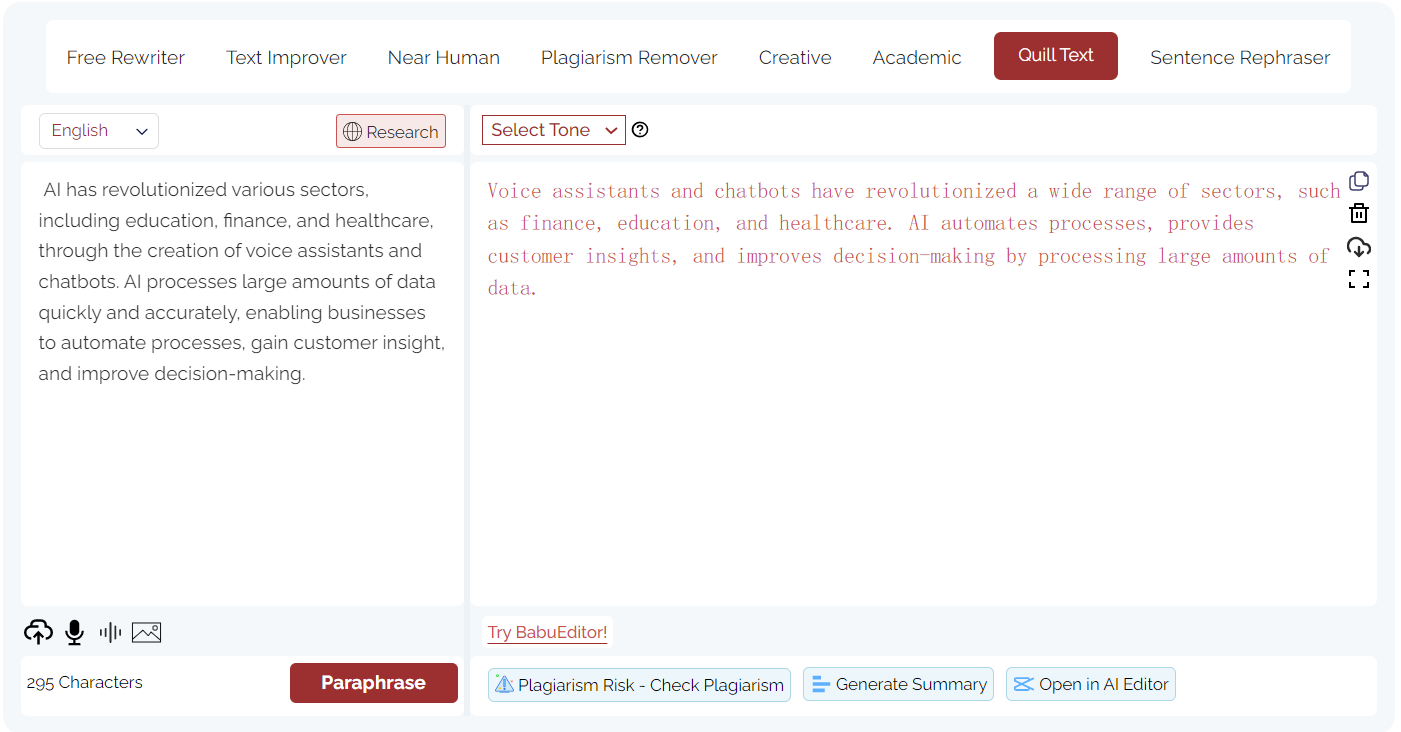
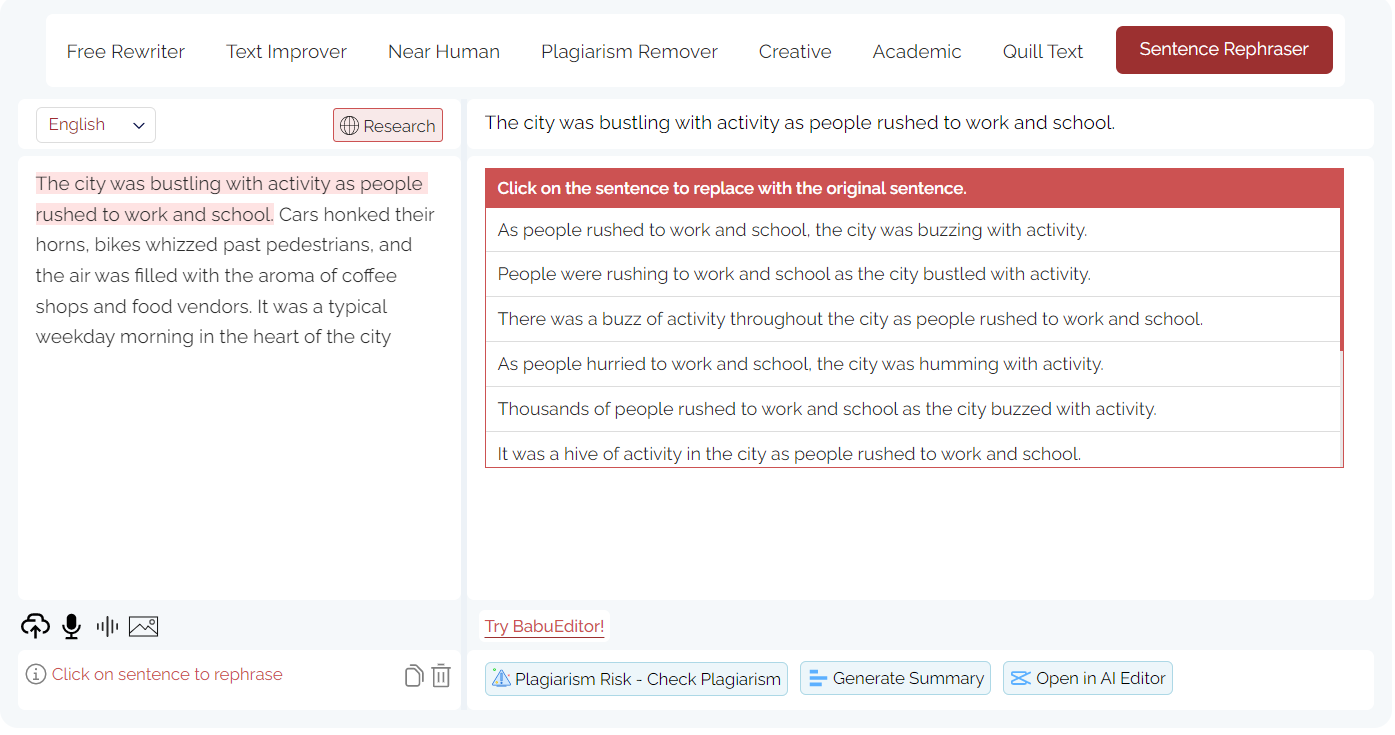
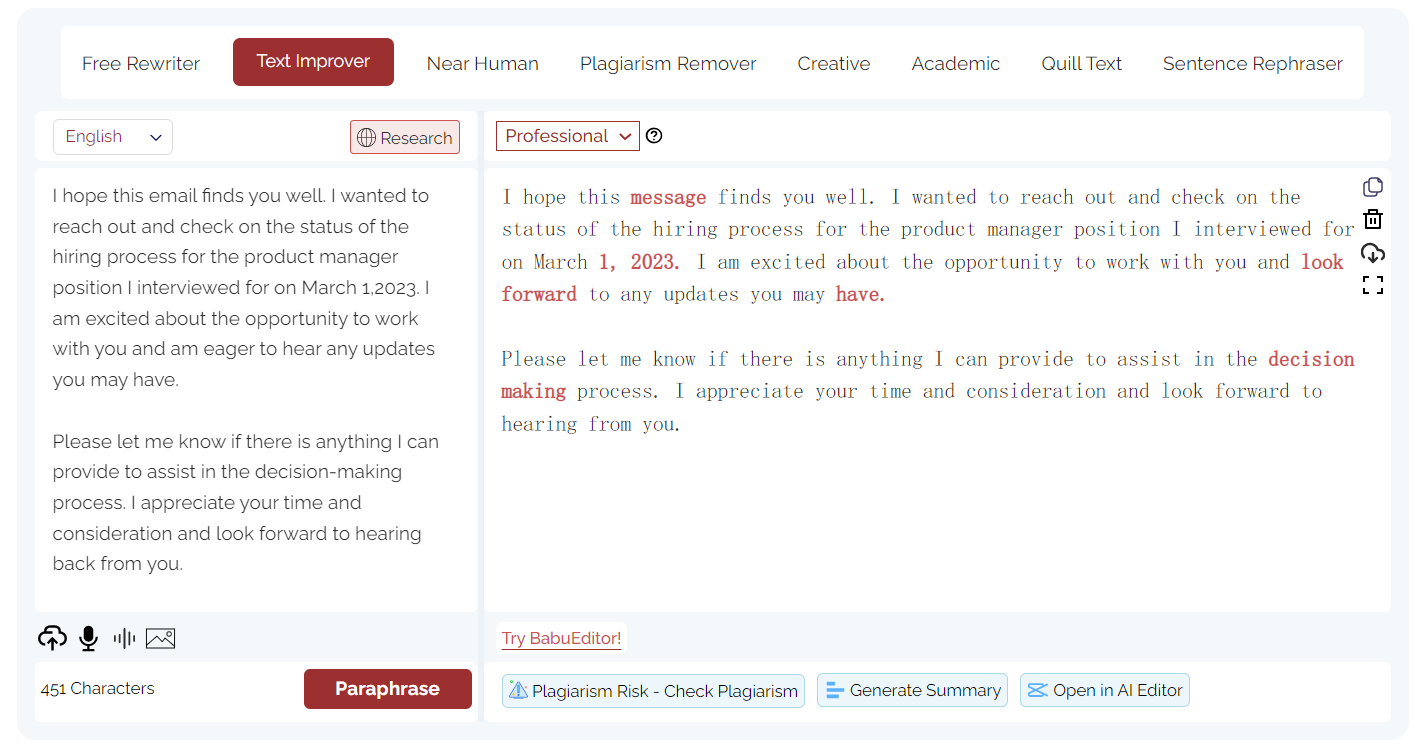
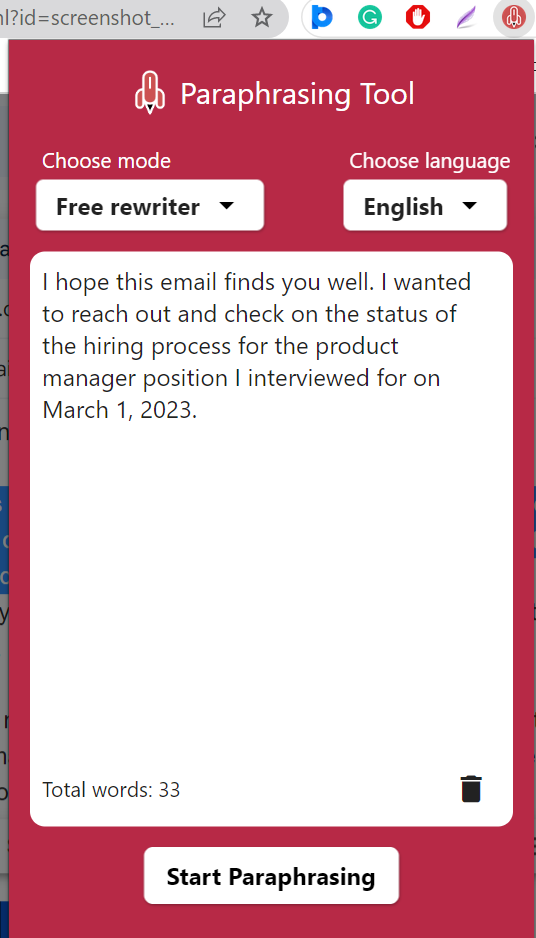
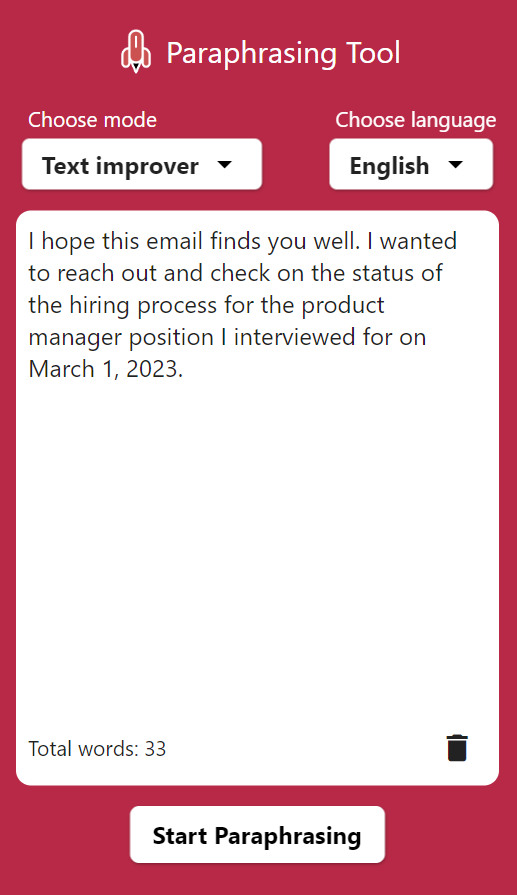
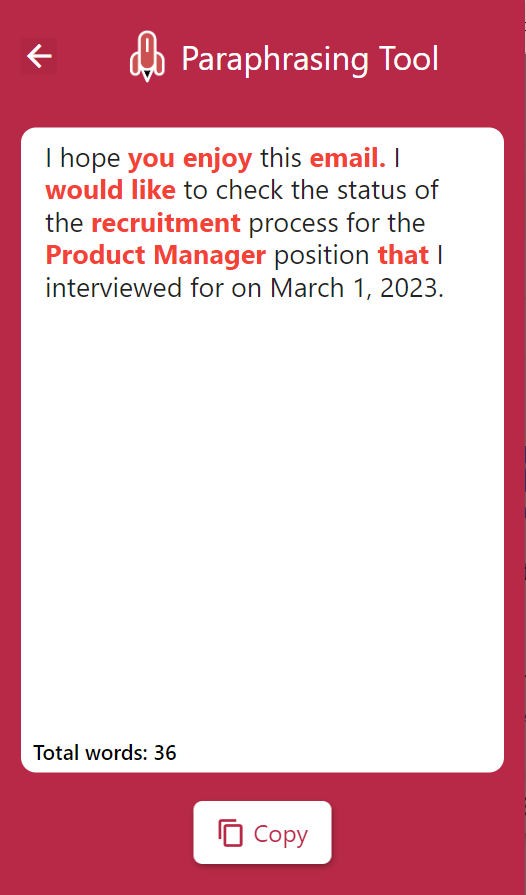
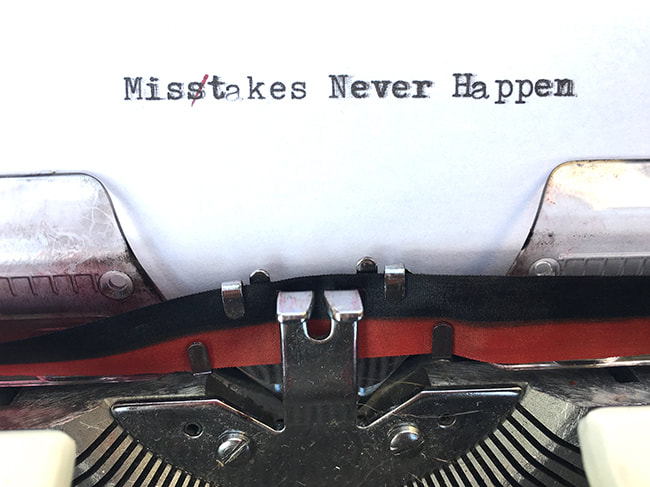

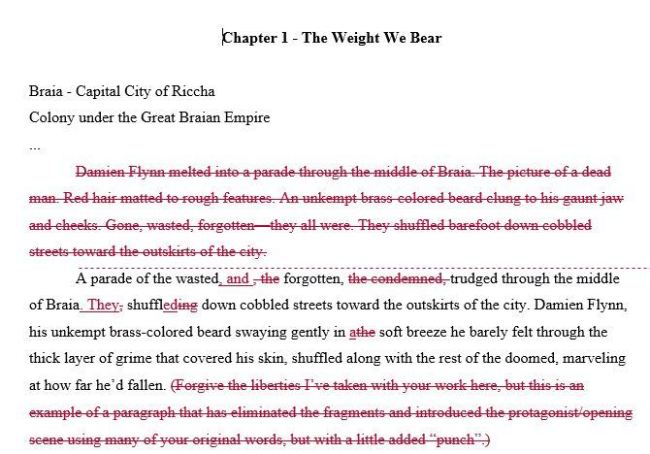




 RSS Feed
RSS Feed